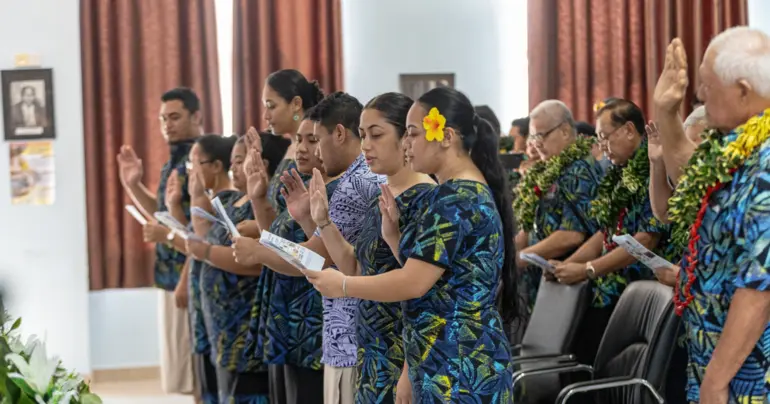Cryptocurrency transactions worry C.B.S.
 By Joyetter Feagaimaali'i
•
28 April 2019, 12:00AM
By Joyetter Feagaimaali'i
•
28 April 2019, 12:00AM
Promoting and engaging in cryptocurrency transactions in Samoa continues to be a major concern for the Central Bank of Samoa (C.B.S.).
Consequently, the regulator of Samoa's financial sector is investing in massive awareness campaign programs in a bid to educate the public on the dangers of cryptocurrency.
The concerns of the Central Bank and its plans to raise awareness was outlined in the Central Bank of Samoa’s annual report for the financial year 2017-2018.
The C.B.S. also moved to amend the Anti-Money Laundering Prevention Act 2007 to support their efforts to combat money laundering and counter terrorist financing activities in Samoa.
The amendments to strengthened local laws was endorsed by the country's Parliament in June last year.
“This ensured that Samoa’s anti-money laundering framework was strengthened and consistent with international standards as set by the Financial Action Task Force (FATF).
The amendments to the Money Laundering Prevention Act 2007 now ensures that any promoter of a virtual currency – who contravenes the Act – is subject to an imprisonment term or penalty fine, or both an imprisonment term and a fine.”
Furthermore, the C.B.S said they do not endorse unregulated cryptocurrencies like Bitcoin, Onecoin or any other cryptocurrency that has been promoted in Samoa. Therefore, the Central Bank does not encourage anyone to invest in any of them.
Any person who wishes to promote cryptocurrency or digital currency has to be categorised under the Money Laundering Prevention Amendment Act 2018 as a financial institution.
“This means it must have a valid business licence issued in Samoa and is required to follow the Central Bank’s reporting requirements for financial institutions,” according to the amendments.
According to the annual report, this year also saw the increasing global phenomenon that is cryptocurrency.
“While this technological development has its benefits, there are also risks that central banks and regulators worldwide have had to quickly address, particularly where fraudulent activities were identified.
“In view of this, the Bank in the latter half of this financial year issued various public awareness programs to inform the general public of the risks of one such cryptocurrency program known as One Coin, which has reached our shores.
“We will continue to undertake similar public awareness programs on any other identified area of concern, to ensure Samoa’s financial system is safe and robust against any money laundering and/or terrorist financing activities.”
Earlier this year, the C.B.S. warned the public that cryptocurrencies such as Bitcoin, Onecoin, Ethereum, EOS, Lite Coin etc. are not currencies issued or regulated by the bank.
“They do not have any legal tender status to be accepted as a currency in Samoa. Investment in such digital currencies is considered very risky and speculative in nature,” the regulator stated in a statement it issued back then.
“People who invest in any of the cryptocurrencies do so at their own risk. There is no guarantee that cryptocurrencies will be accepted as a medium of exchange, or will hold their value.”
 By Joyetter Feagaimaali'i
•
28 April 2019, 12:00AM
By Joyetter Feagaimaali'i
•
28 April 2019, 12:00AM











